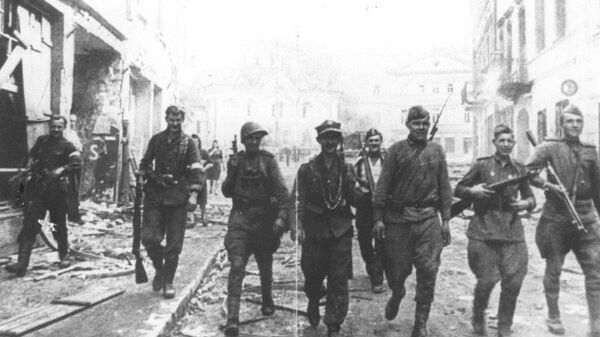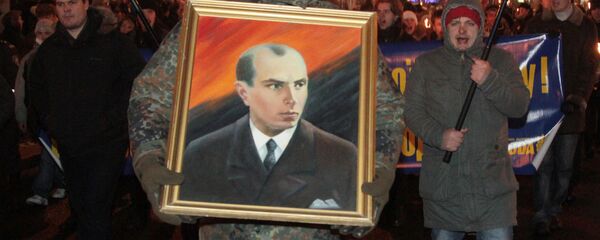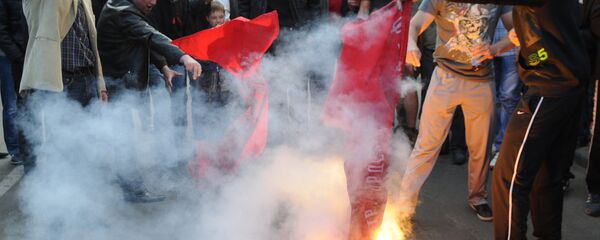The campaign of ethnic cleansing, orchestrated by the Organization of Ukrainian Nationalists – Ukrainian Insurgent Army (OUN-UPA), targeted Polish, Jewish, Russian, and anti-fascist Ukrainians in the regions of Volhyn and Eastern Galicia. The campaign against the Poles alone resulted in the deaths of between 80,000 and 120,000 people, predominantly women and children, between 1943 and 1944. The campaign was also shockingly brutal, with militias burning down villages and using knives and axes on their victims to save bullets.
The Russian MPs' bill pays direct homage to the initiative of their Polish counterparts. The text of the document, cited by RIA Novosti, reads that "the Russian State Duma expresses its sincere condolences to the Polish people in connection with their national tragedy, and its profound solidarity with the Polish Sejm on the recognition of the crimes of Ukrainian nationalists in Volyn as genocide. This declaration by the Russian Duma is intended to defend the truth about the Great Patriotic War (the Second World War), its heroes and victims."
The lawmakers emphasized that their proposal is meant to protect objective accounts of the historical events of the time from politically motivated reevaluations and distortions, and to prevent the rehabilitation of Nazism and associated ideologies. They also hope that their bill will help improve Russian-Polish relations, which have been particularly rocky lately.
Russia's relations with Poland have been marred by long-standing historical animosities, including disagreements over the Second World War. Russia has expressed its outrage over a Polish campaign to remove dozens of Soviet memorials left over from the communist period devoted to the 600,000 Soviet soldiers who died on Polish soil helping to liberate the country from Nazi occupation. The Poles, for their part, have criticized Russia's role in the lead up to the war, including Moscow's signing of the Molotov-Ribbentrop Pact, and the execution of Polish officers by Soviet security services. Moscow has apologized for the executed officers.





